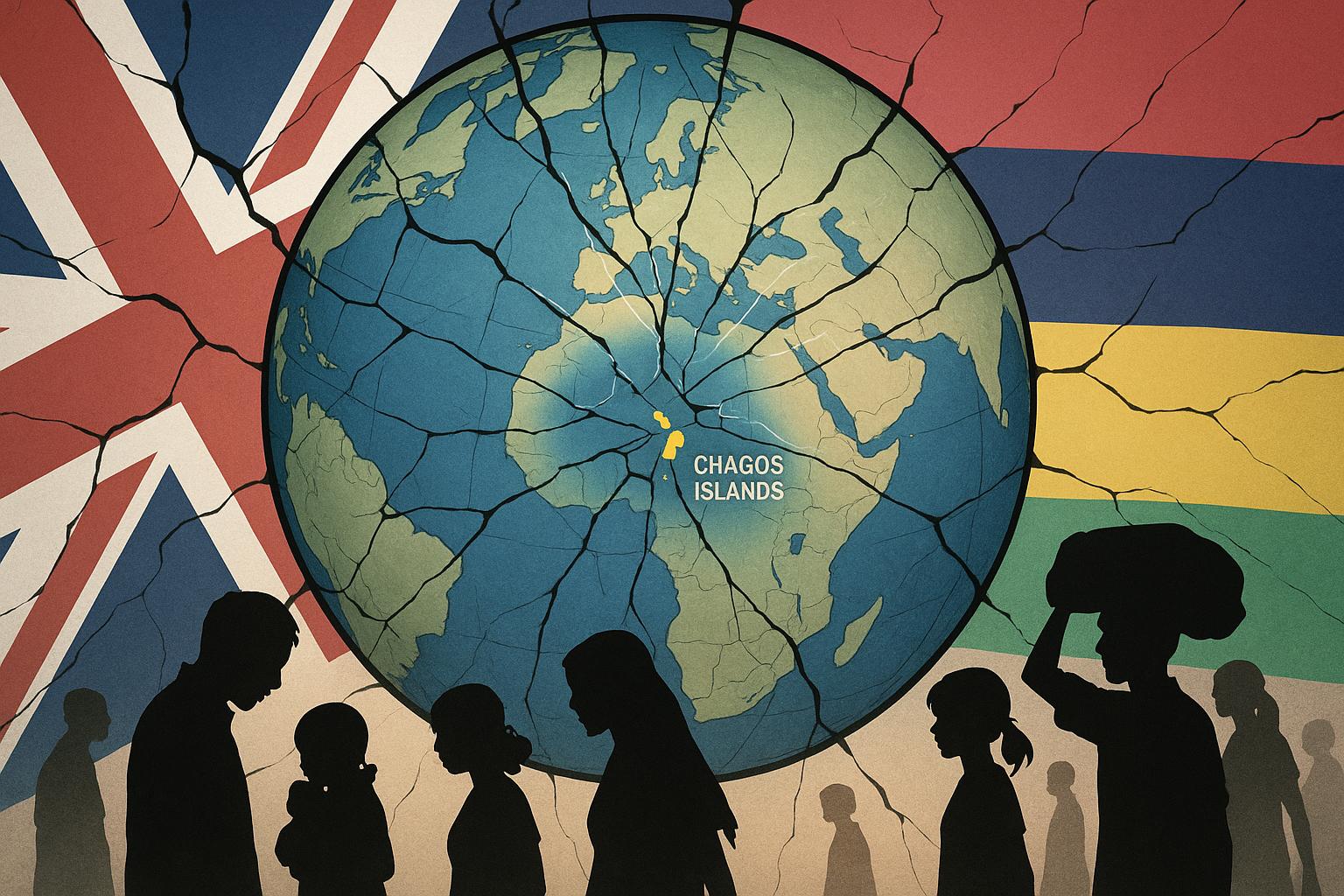The recent agreement between the United Kingdom and Mauritius regarding the Chagos Islands has stirred considerable controversy and debate. When Donald Trump ascended to the presidency, many assumed he would oppose the accord forged under the leadership of Keir Starmer, especially given the historical complexities surrounding the archipelago. Surprisingly, the Trump administration lent its support, aligning with the UK’s direction to sign the deal.
The controversial accord grants Mauritius sovereignty over the Chagos Islands while allowing the UK to retain control of Diego Garcia, a pivotal military base used by both the UK and the U.S. This base has been instrumental in various military operations, ranging from the War in Afghanistan to recent deployments in Yemen and Gaza. The agreement, involving a projected payment of £101 million annually to lease the base for 99 years, resulted from intensified international pressure following a ruling by the UN’s International Court of Justice that deemed Britain's detachment of the islands from Mauritius in 1965 unlawful.
In Britain, the deal is often viewed through the lens of Starmer’s commitment to human rights and international law, a standpoint shaped significantly by counsel from Philippe Sands, a prominent human rights barrister and author. Sands has been vocal about the need for countries to honour international legal standards, a view that has resonated within press and political circles. Critics, however, argue that this commitment to international law overlooks the historical injustices faced by the displaced Chagossians, who were forcibly removed from their homeland to establish the military base.
The ramifications of this agreement extend beyond fiscal arrangements; they reignite a complex history steeped in colonialism and displacement. The Chagossians, displaced during the 1960s and 70s, have long fought for their right to return. The recent accord remains silent on guarantees for their resettlement, a point of anguish for many islanders who feel abandoned in the discussions. Human rights advocates echo these sentiments, decrying the ongoing displacement as a continuation of colonial injustices that have not been adequately addressed by either government.
Moreover, the political backdrop in Mauritius has also influenced the approval of the agreement. The country recently experienced a change in leadership, with the new Prime Minister expressing concerns about the lack of consultation with the citizens regarding the deal. Within Mauritius, questions loom about the national interest and whether the terms truly reflect the will of the people. This dissent underscores an ongoing tension between diplomatic agreements and the need to honour historical grievances.
While some have commended the deal for reinforcing UK-U.S. military cooperation in an increasingly complex geopolitical landscape—especially given rising concerns about China's influence in the region—the criticisms from opposition parties in the UK spotlight a growing unease regarding national sovereignty and the prioritization of international relations over domestic concerns. Notably, figures from the UK’s Conservative Party have labelled the agreement a detrimental concession, warning that it may impose financial burdens on taxpayers while potentially compromising national security.
As the agreement awaits parliamentary approval, the perspectives of displaced Chagossians continue to be a poignant reminder of the legacies of colonialism. Their voices are critical to understanding the broader implications of such diplomatic negotiations. As they advocate for recognition of their cultural identity and rights, the past remains inextricably linked to the present, making the quest for justice and acknowledgement an ongoing challenge.
Reference Map:
- Paragraph 1 – [1], [4]
- Paragraph 2 – [2], [3]
- Paragraph 3 – [1], [5], [6]
- Paragraph 4 – [2], [6]
- Paragraph 5 – [3], [4]
- Paragraph 6 – [5], [6]
Source: Noah Wire Services
